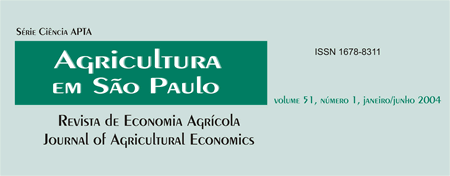
Nilce da Penha Migueles Panzutti
Esta pesquisa tem a finalidade de analisar as mudanças ocorridas, ao longo de três décadas (de 1970 a 2000), nas relações familiares e de gênero, que se instalam entre os moradores de Itinguçu com a mudança no seu modo de vida e sua condição de posseiro em morador a partir da criação da Estação Ecológica Juréia-Itatins (EEJI), Estado de São Paulo. Mudanças estas causadas não só pelo impacto da criação da Estação como também pela intensificação das relações do núcleo com o meio urbano (Peruíbe), pela sua proximidade e pela freqüência das relações que se estabelecem com o mundo moderno por meio do turismo existente no local, devido à Cachoeira Paraíso. Ao focalizar a família e as relações de gênero, procura- se apreender, de forma objetiva, a divisão sexual e as relações de gênero subjacentes e seus significados. A pesquisa é baseada em informações obtidas em levantamento de campo com a observação direta e entrevistas direcionadas e/ou com discurso livre, aplicadas em períodos diversos, entre 1998 e 2000, aos moradores do bairro de Itinguçu, e pelos temas: sexualidade, casamento e maternidade, principalmente às mulheres. Dessa análise concluiu-se que a família ainda continua desempenhando um papel fundamental na vida dos moradores de Itinguçu. Apresenta uma decomposição na sua forma tradicional em virtude do abandono da agricultura familiar; do impacto da criação da Estação Ecológica, sobretudo no que diz respeito ao direito de posse. As práticas não agrícolas integradas à agricultura de auto-subsistência, que se desenvolvem progressivamente, e a introdução de “valores modernos” ao modo de vida também contribuem promovendo as variações na forma organizativa familiar.
Palavras-chave: agricultura familiar, posseiros, unidades de conservação, família e relações de gênero.
This research has the purpose of analyzing shifts in family and gender relationships among the residents of Itinguçu over three decades (1970 to 2000) in connection with their lifestyle changes and the conversion of their leaseholder status to that of resident, once the Ecological Station Juréia-Itatins (EEJI), State of Sao Paulo was created. Besides the impact of the creation of the EEJI, shifts were intensified by the proximity to urban core (Peruibe city) and the higher influx of tourists to visit the local Paradise Waterfall that brought dwellers a closer contact with the modern world. When focusing the family and gender relationships, the research gives an objective focus to sexual division and the underlying gender relationships and their meanings. The research is based on field information obtained through direct observation and directed interviews and/or free speech, applied in several periods between 1998 and 2000 to Itinguçu´s residents, mainly women. A conclusion drawn from the analysis is that the family still plays a fundamental role in the lives of Itinguçu´s dwellers. However, its traditional form has decomposed because of the abandonment of family agriculture and the impact of the creation of the Ecological Station, mainly with regards to ownership rights. Non-agricultural practices progressively integrated into the self-subsistence agriculture, as well as the introduction of “modern values” into their way of life also promote variations in the family´s organizative structure.
Key-words: family farmers, leaseholding, conservation units, family and gender relationships.
JEL Classification: Q2.